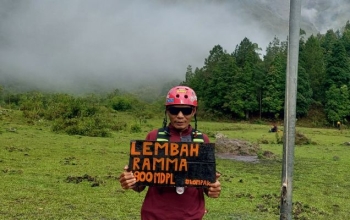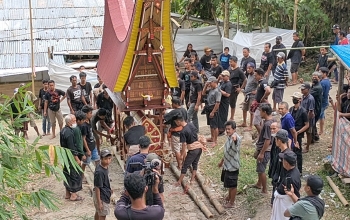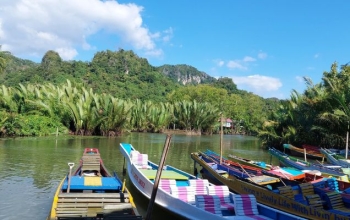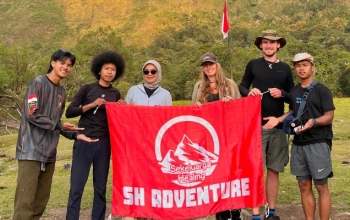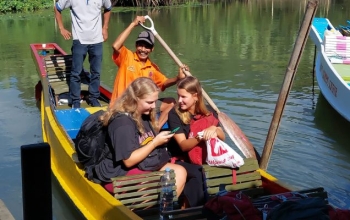- Selamat datang, silahkan pilih destinasi tujuan Anda, Kami dengan senang hati akan memberikan service terbaik.
How to Witness the Rambu Solo Funeral Ceremony in Toraja
5 October 2025 10x Toraja
Toraja, a highland region located in the heart of South Sulawesi, Indonesia, is widely known for its breathtaking landscapes, traditional architecture, and unique cultural practices. Among the many traditions that define the Torajan people, the Rambu Solo funeral ceremony stands as the most elaborate, emotional, and spiritually significant. Far beyond an ordinary burial, Rambu Solo is a grand social and religious event that celebrates the journey of the deceased to the afterlife, combining ritual, art, music, and community togetherness in one unforgettable experience.
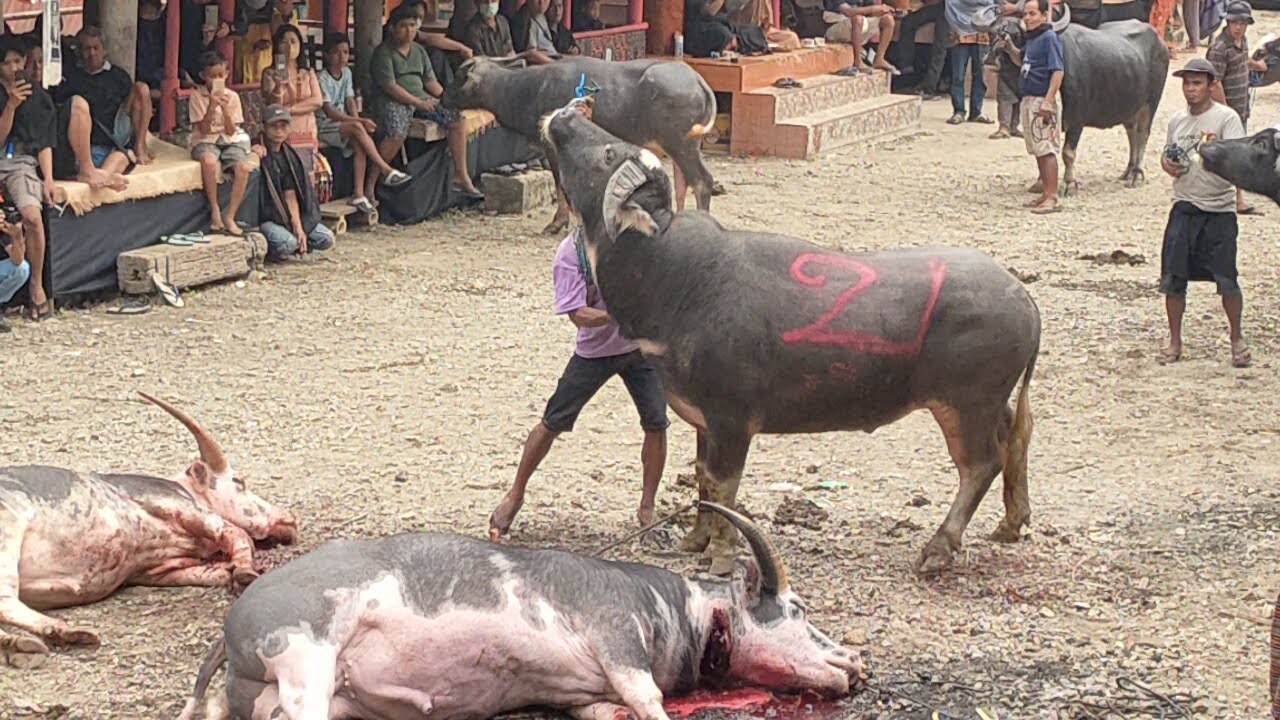
For visitors, witnessing Rambu Solo offers deep cultural insight into the Torajan worldview, where life and death are intertwined and where the afterlife is seen not as an end, but a continuation of existence. However, attending this sacred event requires respect, understanding, and careful planning. This article will guide you step by step on how to see and experience the Rambu Solo ceremony in Toraja, from the best time to visit, how to find authentic ceremonies, what to expect during the event, and the proper etiquette to observe as a respectful guest.
Understanding Rambu Solo: Meaning and Significance
Before planning a visit, it is essential to understand what Rambu Solo truly represents. In the Torajan language, “Rambu” means “smoke,” and “Solo” means “descending” or “going down.” The term refers to the smoke that rises as offerings are burned during the ceremony, symbolizing the soul’s descent to Puya, the land of the spirits.
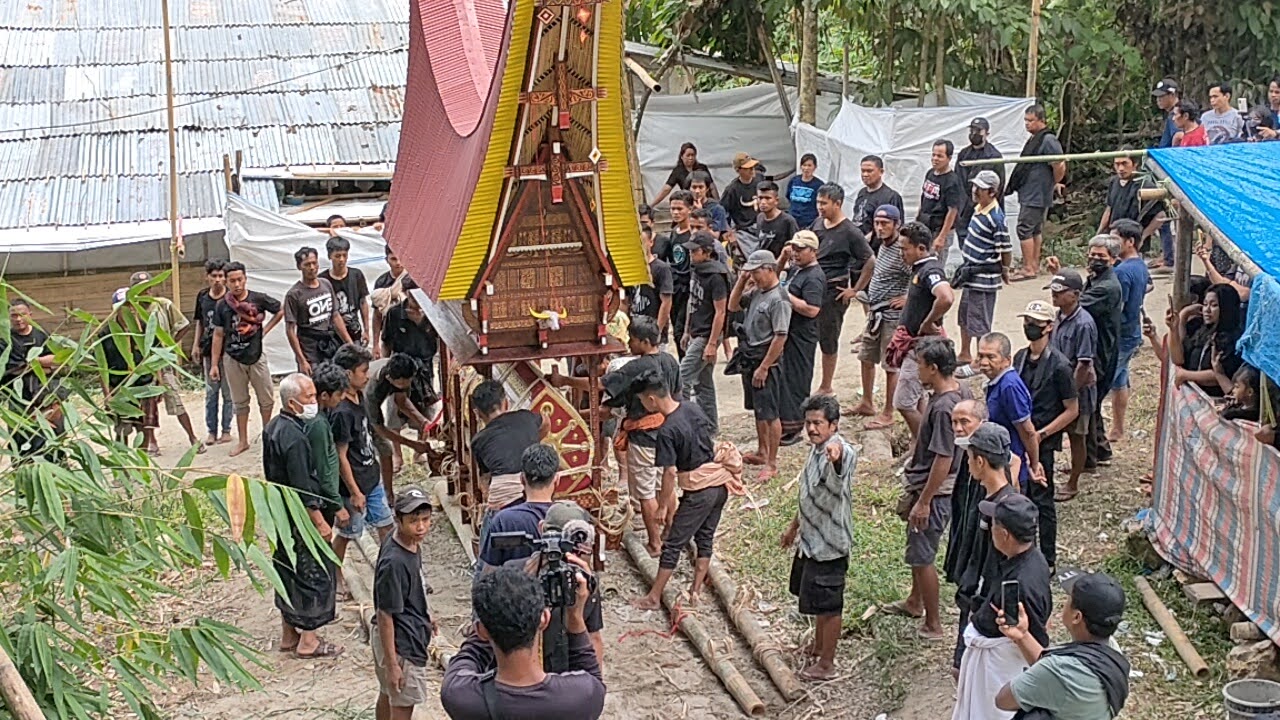
Unlike in most cultures, death in Toraja is not immediately followed by burial. The deceased may remain in the family home for weeks, months, or even years, preserved with natural or chemical substances, while the family saves money and prepares for a proper Rambu Solo ceremony. This delay allows relatives from faraway regions to gather and ensures that the family can afford the elaborate rituals that honor the deceased’s social status.
Rambu Solo is therefore not only a religious event but also a social obligation and expression of status, especially among the noble classes of Toraja. The scale of the ceremony—number of buffaloes sacrificed, duration of the event, and size of the crowd—reflects the family’s wealth, respect for their ancestors, and adherence to Torajan traditions.
Best Time to Witness Rambu Solo
Rambu Solo ceremonies are not held on fixed dates. They depend on the family’s readiness and are usually scheduled after harvest season, between June and October, when villagers have both the resources and free time to organize large gatherings.
If you wish to witness the ceremony, the best approach is to visit between July and September, when most of the major Rambu Solo events take place. During this dry season, the weather is clear, travel conditions are good, and local tourism offices often have information about upcoming ceremonies open to visitors.
Local guides in Rantepao, the cultural and economic center of Toraja, can help identify which villages are hosting ceremonies during your visit. Many ceremonies are open to the public, but some private family events may require an invitation or permission from the hosts.
How to Get to Toraja
Toraja is located approximately 300 kilometers north of Makassar, the capital of South Sulawesi. There are several ways to reach this highland region:
- By Air:
The most convenient option is to fly from Makassar to Toraja Airport (Buntu Kunik) near Rantepao. The flight takes around 45 minutes and is operated by local airlines several times per week. - By Road:
Traveling by bus or private car from Makassar to Rantepao takes about 8–10 hours, passing through scenic mountain roads and traditional Bugis villages. While longer, the road trip offers stunning views of rice terraces, valleys, and mist-covered hills that make the journey memorable. - By Organized Tour:
Several travel agencies offer cultural tours to Toraja that include transportation, accommodation, and access to local ceremonies such as Rambu Solo. This option is recommended if you prefer a hassle-free and guided experience.
Finding a Rambu Solo Ceremony
Once in Rantepao, finding a Rambu Solo ceremony usually involves local knowledge. The easiest and most respectful way is through licensed local guides who maintain connections with village leaders. They can inquire about ongoing or upcoming ceremonies and check whether guests are welcome.
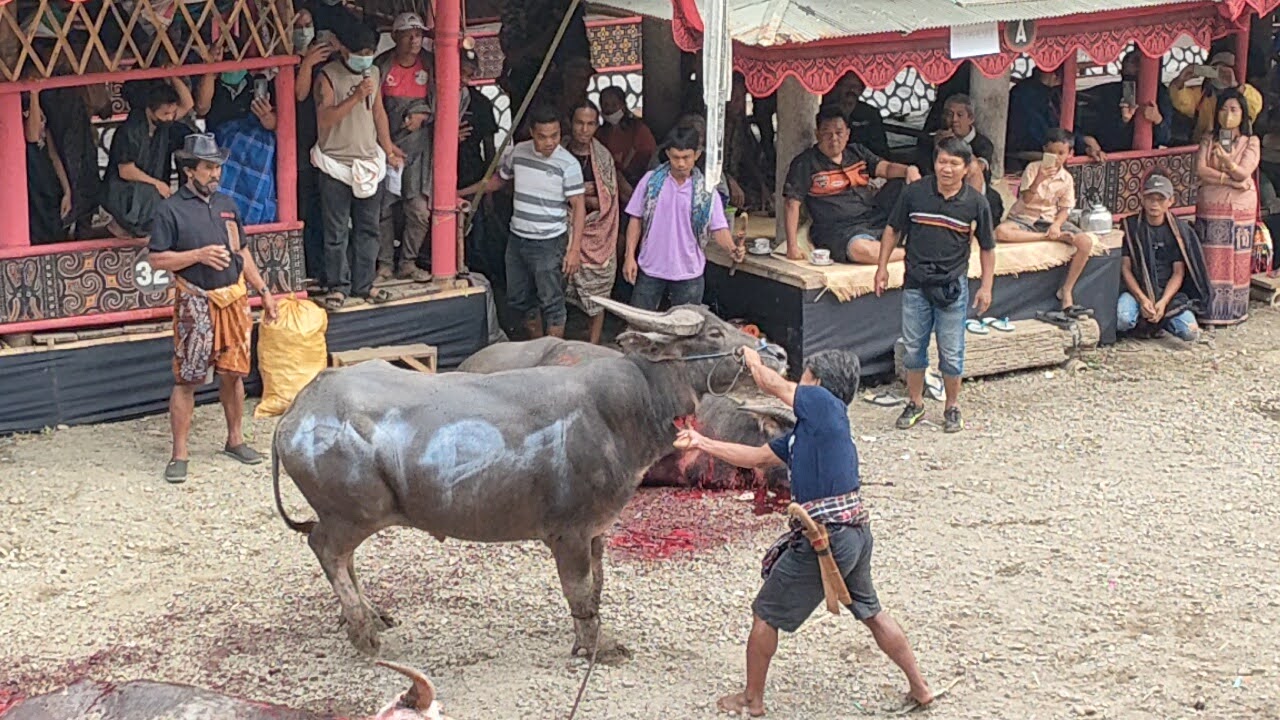
Information boards at hotels and tourist offices sometimes list scheduled ceremonies. However, because dates can change, it is best to confirm directly with local contacts. Guides will typically take you to a nearby village—such as Londa, Lemo, Sangalla, or Palawa—where ceremonies are commonly held.
Remember that while foreigners are often welcomed, these events are not tourist shows. They are real funerals with deep spiritual meaning. Always ask for permission before attending, and offer a small token of respect, such as a pack of cigarettes, sugar, or a monetary contribution, which will be handed to the host family as a sign of gratitude.
What Happens During Rambu Solo
The Rambu Solo ceremony may last from two to ten days, depending on the family’s wealth and the social rank of the deceased. Each day features specific rituals, performances, and sacrifices that mark the transition of the soul to the afterlife.
1. The Gathering of the Family
Relatives and guests arrive from all over the region, bringing gifts and livestock as offerings. The deceased, often kept inside a traditional Tongkonan house, is brought out in a beautifully decorated coffin. Temporary bamboo structures are built to accommodate guests, while the main field becomes the center of the ceremony.
2. The Opening Procession
A procession known as Ma’pasa Tedong takes place, where buffaloes are paraded around the field. The animals are a vital part of the ceremony because Torajans believe buffaloes carry the soul to heaven. The number and type of buffaloes—especially the rare Tedong Bonga (spotted buffalo)—reflect the family’s honor and wealth.
3. The Music and Dance
Throughout the event, guests perform traditional dances such as Ma’badong, a circular dance of men chanting rhythmic songs to express grief and respect. Women may perform Ma’randing, a dance that tells heroic stories of the deceased’s life. The music of gongs, bamboo flutes, and drums fills the air, creating an atmosphere that is both mournful and majestic.
4. The Buffalo and Pig Sacrifices
Sacrificial rituals are among the most dramatic parts of Rambu Solo. Dozens of buffaloes and pigs are offered to the spirits, with their meat later distributed among guests and the local community. The act of sacrifice is believed to ensure the soul’s safe journey to Puya. While this may appear shocking to outsiders, it is a sacred duty deeply rooted in Torajan cosmology.
5. The Burial Ceremony
Finally, the deceased is taken to their final resting place, which could be a stone cliff tomb, hanging grave, or family cave carved into the mountainside. Elaborate wooden effigies called Tau-Tau are placed near the tomb to represent the deceased, watching over the valley below as guardians of the family line.
Etiquette for Visitors
When attending Rambu Solo, cultural sensitivity is essential. Here are key guidelines to ensure your presence is respectful and appreciated:
- Dress Modestly: Wear neutral or dark clothing. Avoid bright colors that might appear festive or disrespectful.
- Ask Before Taking Photos: Always seek permission before photographing people, especially the deceased or rituals involving sacrifices.
- Follow Local Instructions: Listen to your guide and the hosts. Some areas may be restricted to family members only.
- Contribute Respectfully: A small donation or gift is customary. It shows appreciation and respect for the family’s hospitality.
- Avoid Disruption: Maintain silence during prayers or chants. Never touch sacred objects or enter the ceremonial house without invitation.
- Be Emotionally Prepared: The ceremonies can be intense, involving animal sacrifices and expressions of grief. Observe quietly and respectfully.
Where to Stay and What to See Nearby
Rantepao and its surrounding villages offer numerous accommodations ranging from guesthouses to boutique hotels. Some popular options include Toraja Heritage Hotel, Misiliana Hotel, and Pias Poppies Guesthouse.
Between ceremonies, visitors can explore other remarkable cultural and natural sites, such as:
- Lemo: Cliffside burial sites with rows of Tau-Tau effigies.
- Kete Kesu: A traditional Torajan village with well-preserved Tongkonan houses and rice barns.
- Londa: Limestone caves that serve as ancient burial chambers.
- Batutumonga: A scenic viewpoint overlooking rice terraces and misty hills.
- Bori Parinding: A megalithic site where ancient stone monuments stand in ritual circles.
Exploring these areas provides deeper understanding of the Torajan philosophy that connects life, death, and nature in harmony.
The Deeper Meaning of Rambu Solo
Witnessing Rambu Solo is not merely about seeing a cultural attraction; it is about experiencing a living philosophy of life and death. In Torajan belief, humans are part of a cyclical journey between the world of the living (To Mamasa) and the world of spirits (To Puya). The ceremony represents a bridge between these two realms, reaffirming family bonds and ancestral continuity.
For the Torajans, death is not a tragedy but a sacred passage. Through Rambu Solo, they express love, gratitude, and respect for those who have departed. The event also reinforces community solidarity—neighbors, relatives, and even strangers come together to help, share, and mourn collectively.
This sense of unity is what makes Rambu Solo more than just a funeral—it is a celebration of life itself, an act of remembrance that connects generations and preserves cultural identity amid the changes of modern times.
The Rambu Solo ceremony in Toraja is one of the most fascinating cultural experiences in Indonesia and the world. To witness it is to step into a society where the boundary between life and death is bridged by faith, ritual, and tradition.
As a visitor, approaching the ceremony with respect, curiosity, and humility will allow you to appreciate its profound meaning. You will not only see the beauty of the event but also feel the warmth of a community that honors life through remembrance.
From the moment you arrive in Rantepao, walk through misty valleys, and stand among the towering Tongkonan houses, you will understand why Toraja is often called “The Land of Heavenly Kings.”
Rambu Solo is not just a spectacle—it is a window into the human spirit, reminding us that love, family, and memory continue to live on, even beyond death.
Mungkin Anda tertarik membaca artikel berikut ini.
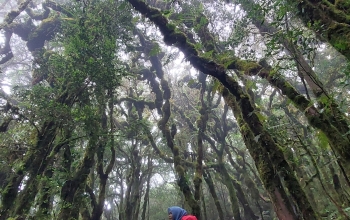
Keindahan Hutan Lumut di Pos 6 – 7 Gunung Bawakaraeng Via Lembanna&Buluballea
Gunung Bawakaraeng di Kabupaten Gowa, Sulawesi Selatan, merupakan salah satu gunung paling populer di Sulawesi bagi para pendaki. Gunung dengan ketinggian 2.830 mdpl ini tidak hanya menawarkan jalur pendakian yang menantang, tetapi juga menyimpan pesona alam yang menakjubkan. Salah satu daya tarik utamanya adalah hutan lumut yang berada di sekitar Pos 6 hing... selengkapnya

Peta dan Rute Pendakian Lembah Lohe Terbaru 2025
Sulawesi Selatan memang tidak pernah berhenti mempesona dengan bentang alamnya yang luar biasa. Di antara banyak destinasi pegunungan yang mulai naik daun dalam beberapa tahun terakhir, nama Lembah Lohe muncul sebagai salah satu primadona baru. Berada di ketinggian 1.917 mdpl, lembah ini diapit gagah oleh tiga gunung besar, yaitu Gunung B... selengkapnya
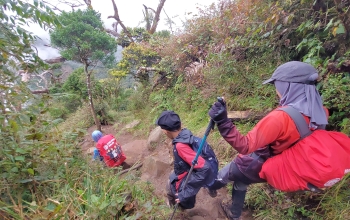
Jalur Pendakian Gunung Bawakaraeng Via Kanreapia Gowa Resmi Dibuka untuk Umum
Gunung Bawakaraeng merupakan salah satu gunung legendaris di Sulawesi Selatan yang tak hanya dikenal karena keindahan alamnya, tetapi juga karena nilai sejarah dan spiritual yang melekat pada masyarakat sekitar. Gunung ini menjadi ikon pendakian di wilayah Gowa dan sekitarnya, serta menjadi tujuan favorit bagi para pendaki dari berbagai daerah di Indonesia. ... selengkapnya
Kontak Kami
Apabila ada yang ditanyakan, silahkan hubungi kami melalui kontak di bawah ini.
-
Hotline
081316026384 -
Whatsapp
081316026384 -
Email
amiruddinemail@gmail.com

